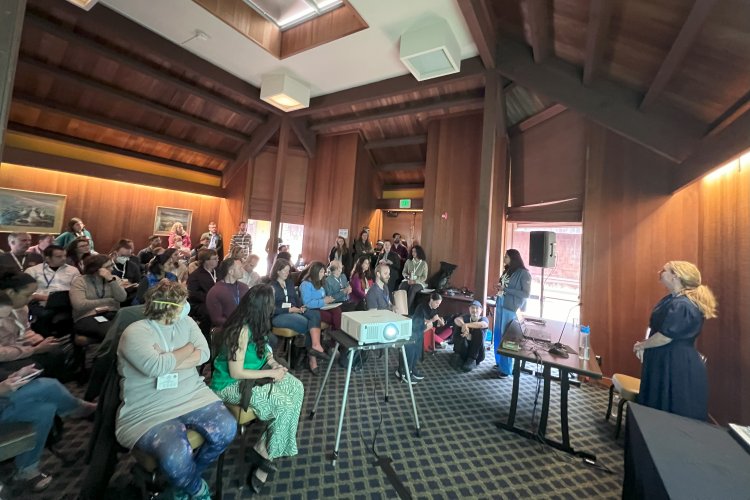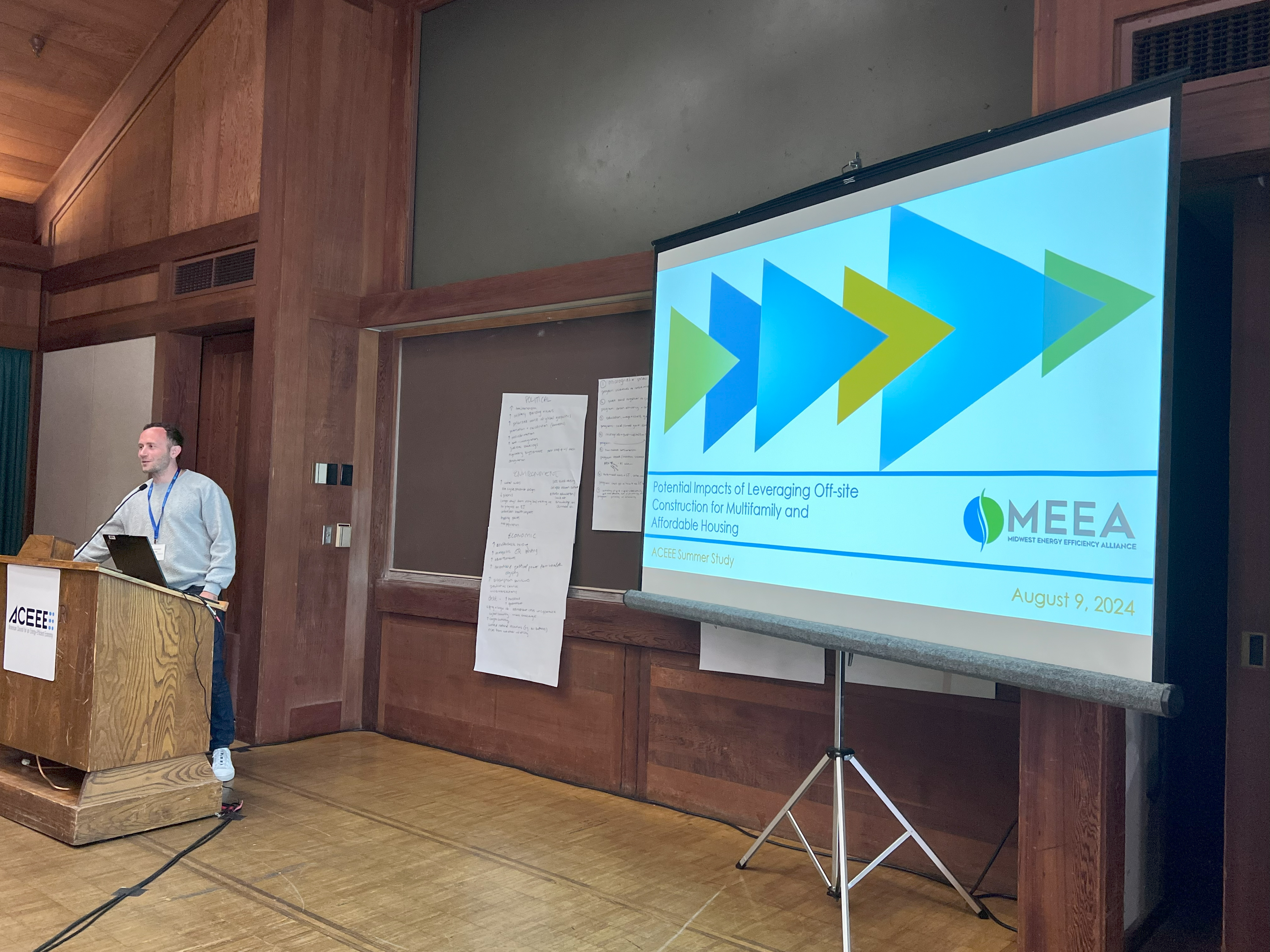
When most people think about nature, the first place their minds wander is not often ‘buildings.’ As made clear throughout ACEEE’s Summer Study conference, this is different for people working in the building energy efficiency space.
For these buildings professionals, balancing nature and the built environment is a constant challenge. They must weigh power and fuel generation mix while prioritizing energy efficiency, consider multi-dimensional feedback in design and responsibly manage the planet's limited natural resources amidst climate change and the increasing global demand for covered spaces.
The topic of this year’s Summer Study, “Equity and Climate Action: Time to Deliver,” offered 14 panels over five days to discuss these topics at the idyllic Asilomar Conference Grounds in Pacific Grove, CA. According to ACEEE, Summer Study hosted eight countries including Germany and various Canadian provinces, with 1,227 attendees in total. Panels about environmental mitigation, energy fairness, dual fuel systems, building standards and codes compliance took place alongside informal discussions for groups to brainstorm communications strategies and evaluate different problem-solving approaches to various outcomes that acted as lessons-learned.
Top 5 Significant Themes at ACEEE Summer Study 2024:
- Building Performance Standards: This tool has potential for unique applications in each community to improve energy efficiency and community health & wellness.
- Heat Pumps: This technology, though it has been around for a while, has increasingly versatile applications for different needs and situations.
- Buildings Codes and Standards: Improve community health and safety and do not negatively impact economic development by moving to neighboring jurisdictions.
- Community Engagement: Mechanisms for shifting decision-making power to (priority) communities.
- Resilience Hubs: Utilizing strategies for community-inclusive design, these can establish authentic communication with impacted populations and overcome challenges after launch.
Building Performance Standards (BPS) were a part of many discussions at the conference, showing that its application can be unique to each municipality, yet replicable for strong, efficient codes implementation.
Authentic community engagement was another consistent theme. We participated in discussions on how to prioritize community voices, ensuring that these voices are integrated into program design. In order to build trust, relationships can take time, especially in historically-excluded communities.
One thing that resonated with MEEA staff was how resilience hubs can work to engage the communities they are in. These can be tools to connect to the community and similarly, an extremely valuable resource for community members.
MEEA Research on Display
Both Alison Lindburg and John Gossman from MEEA also presented innovative papers during the conference.
Alison's paper, "Do Stronger Energy Codes Move Development to Neighboring Jurisdictions?" demonstrated that the answer is "no." Data including permit data trends and energy code adoption analyses showed that stricter energy codes in Illinois did not push development to nearby states. Alison emphasized the importance for everyone in the code adoption process to understand this relationship correctly in order to support community goals and housing needs.
Attendees voiced surprise this wasn't more widely known, which was one motivation Alison and her co-authors had to write the paper. While some in the industry knew this to be true, stakeholders across the country have voiced concerns that strong codes could drive development away. However, now we have data to prove that efficient codes are not cause for development to move to neighboring jurisdictions with weaker codes.
John Gossman shared research from his paper titled, “Potential Impacts of Leveraging Off-site Construction for Multifamily and Affordable Housing.” “Off-site construction” (OSC) is the umbrella term for any part of the construction process completed at a different location (oftentimes warehouses) than its final implementation/installation.

This building method has been around for centuries but hasn’t gained much market share in the U.S., despite its advantages over traditional construction. The U.S. currently faces a housing shortage partly because on-site construction can’t keep up with demand. John’s paper highlighted how off-site construction could boost productivity in an industry resistant to change.
After John presented these findings, attendees discussed how to make off-site construction more common. One crowdsourced idea was that the lending industry could work with building experts to develop new risk-managed lending procedures tailored to OSC, since traditional lending is based on on-site construction timelines. Experts agreed that this collaboration could lead to less-risky lending processes and more productive housing solutions.
MEEA was involved in additional research papers for the 2024 ACEEE Summer Study, including the following:
- Workforce Development: How the Midwest Will Equitably Meet Its Climate Goals identifies efforts to build an energy workforce that can implement climate change solutions in the building sector.
- A Win-Win Strategy: Municipality and Utility Partnerships on Advanced Building Policy Market Transformation details the partnership between Slipstream, MEEA, and ComEd to transform the market through the adoption and implementation of energy-efficient stretch codes and BPS.
- Benefits and Opportunities of Off-Site Construction: An Analysis of Indiana and Pennsylvania explores the energy efficiency impacts and opportunities of using off-site construction in two states and beyond.
- Overcoming Barriers to BPS: A Collaborative, Grassroots Approach to Building Performance Standards describes a project aimed to improve the energy efficiency of existing buildings in large cities in Ohio cost-effectively and equitably.
If you are interested in learning more about MEEA’s research that was presented at ACEEE’s Summer Study, please contact Alison Lindburg or John Gossman.